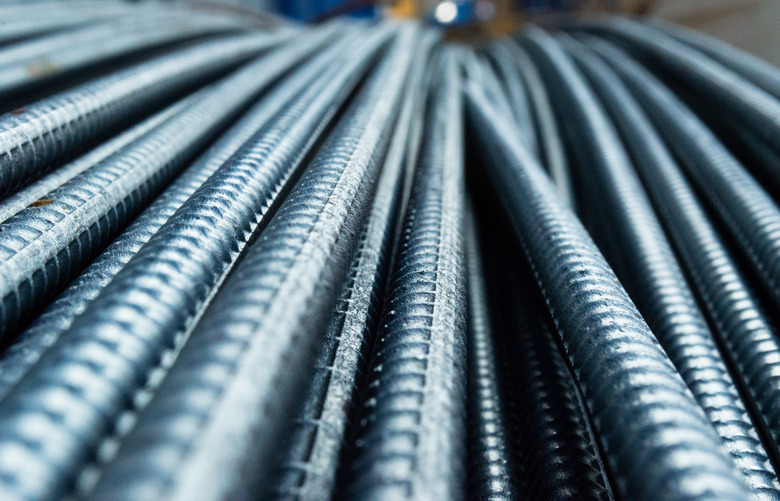Mechanical Properties Of Mild Steel
Steel is made up of carbon and iron, with much more iron than carbon. In fact, at the most, steel can have about 2.1 percent carbon. Mild steel is one of the most commonly used construction materials. It is very strong and can be made from readily available natural materials. It is known as mild steel because of its relatively low carbon content.
Chemistry
Chemistry
Mild steel usually contains 40 points of carbon at most. One carbon point is .01 percent of carbon in the steel. This means that it has at most .4 percent carbon. Most steels have other alloying elements other than carbon to give them certain desirable mechanical properties. 1018 steel, a common type of mild steel, contains approximately .6 percent to .9 percent manganese, up to .04 percent phosphorus, and up to .05 percent sulphur. Varying these chemicals affects properties such as corrosion resistance and strength.
Physical Properties: Strength
Physical Properties: Strength
Mild steel is very strong due to the low amount of carbon it contains. In materials science, strength is a complicated term. Mild steel has a high resistance to breakage. Mild steel, as opposed to higher carbon steels, is quite malleable, even when cold. This means it has high tensile and impact strength. Higher carbon steels usually shatter or crack under stress, while mild steel bends or deforms.
Quantitative Physical Properties
Quantitative Physical Properties
Mild steel has a density of .248 pounds per cubic inch. It melts at 2,570 degrees Fahrenheit. It has a specific heat of around .122 British Thermal Units (BTU) per pound, per cubic inch.
Usability
Usability
Mild steel is especially desirable for construction due to its weldability and machinability. Because of its high strength and malleability, it is quite soft. This means that it can be easily machined compared to harder steels. It is also easy to weld, both to itself and to other types of steel. It takes on a nice finish and is polishable. However, it cannot be hardened through heat treatment processes, as higher carbon steels can. This is not entirely a bad thing, because harder steels are not as strong, making them a poor choice for construction projects.
References
Cite This Article
MLA
Scott, David. "Mechanical Properties Of Mild Steel" sciencing.com, https://www.sciencing.com/mechanical-properties-mild-steel-6618717/. 13 March 2018.
APA
Scott, David. (2018, March 13). Mechanical Properties Of Mild Steel. sciencing.com. Retrieved from https://www.sciencing.com/mechanical-properties-mild-steel-6618717/
Chicago
Scott, David. Mechanical Properties Of Mild Steel last modified March 24, 2022. https://www.sciencing.com/mechanical-properties-mild-steel-6618717/
